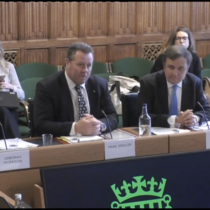Nudges to change our diet shouldn’t harm our health
The government Nudge Unit’s deleted report explores a whole range of measures to ‘nudge’ people into changing their behaviour. It also has some strong caveats, warning of the unintended consequences of well intentioned policies that ‘back fire’.
We agree with the ‘less but better’ message and would apply it to both animal and plant-based foods. However, if political or social engineering drives people to make cheaper, more convenient but less healthy food choices; and if the ‘nudges’ steer them away from natural, nutritious whole foods towards unhealthy, highly processed substitutes, then a decline in public health will be one of those unintended consequences.
First and foremost, any policy decisions and ‘nudges’ should ensure it results in equitable access to foods that provide quality nutrition, particularly to those on lower incomes.
Decisions should also be made using scientifically robust metrics that accurately distinguish between different farming systems. British beef and lamb is produced using a predominantly grass fed system which has a much lower environmental footprint than meat produced elsewhere in the world.
As the Nudge Unit’s report says: “an unsophisticated meat tax would be highly regressive. Moreover, narratives must avoid alienation of mainstream dietary choices, or demonisation of the livestock sector, which will ultimately be the solution rather than the problem”. We would agree.






